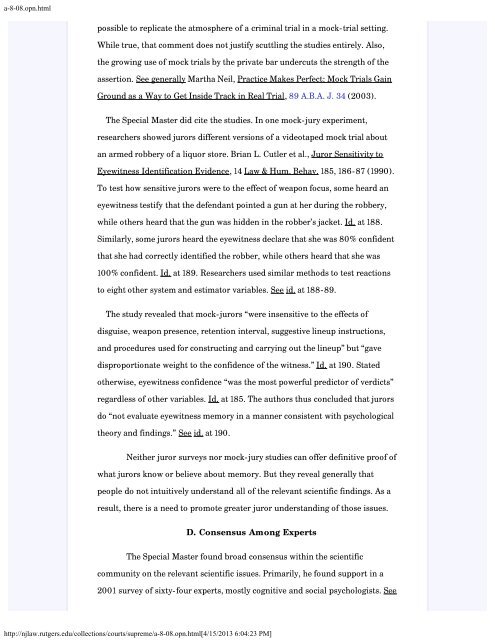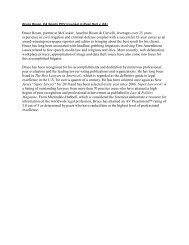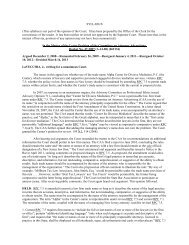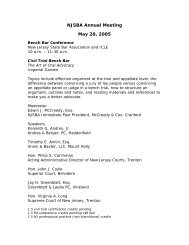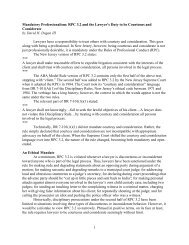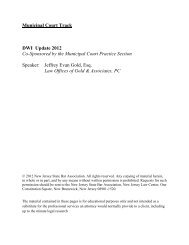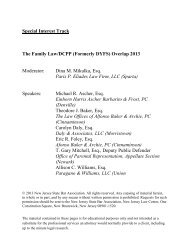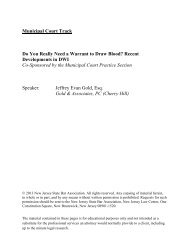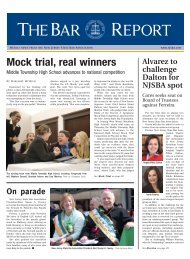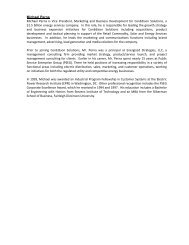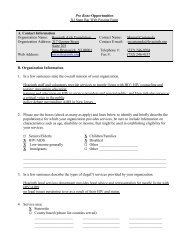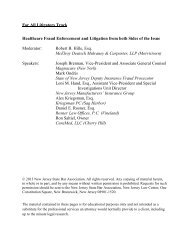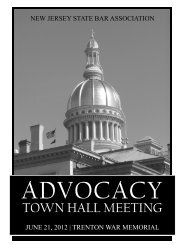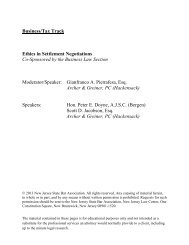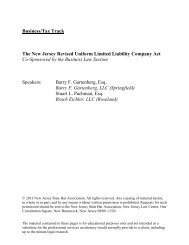State v. Henderson and the New Model Jury Charges - New Jersey ...
State v. Henderson and the New Model Jury Charges - New Jersey ...
State v. Henderson and the New Model Jury Charges - New Jersey ...
Create successful ePaper yourself
Turn your PDF publications into a flip-book with our unique Google optimized e-Paper software.
a-8-08.opn.html<br />
possible to replicate <strong>the</strong> atmosphere of a criminal trial in a mock-trial setting.<br />
While true, that comment does not justify scuttling <strong>the</strong> studies entirely. Also,<br />
<strong>the</strong> growing use of mock trials by <strong>the</strong> private bar undercuts <strong>the</strong> strength of <strong>the</strong><br />
assertion. See generally Martha Neil, Practice Makes Perfect: Mock Trials Gain<br />
Ground as a Way to Get Inside Track in Real Trial, 89 A.B.A. J. 34 (2003).<br />
The Special Master did cite <strong>the</strong> studies. In one mock-jury experiment,<br />
researchers showed jurors different versions of a videotaped mock trial about<br />
an armed robbery of a liquor store. Brian L. Cutler et al., Juror Sensitivity to<br />
Eyewitness Identification Evidence, 14 Law & Hum. Behav. 185, 186-87 (1990).<br />
To test how sensitive jurors were to <strong>the</strong> effect of weapon focus, some heard an<br />
eyewitness testify that <strong>the</strong> defendant pointed a gun at her during <strong>the</strong> robbery,<br />
while o<strong>the</strong>rs heard that <strong>the</strong> gun was hidden in <strong>the</strong> robber’s jacket. Id. at 188.<br />
Similarly, some jurors heard <strong>the</strong> eyewitness declare that she was 80% confident<br />
that she had correctly identified <strong>the</strong> robber, while o<strong>the</strong>rs heard that she was<br />
100% confident. Id. at 189. Researchers used similar methods to test reactions<br />
to eight o<strong>the</strong>r system <strong>and</strong> estimator variables. See id. at 188-89.<br />
The study revealed that mock-jurors “were insensitive to <strong>the</strong> effects of<br />
disguise, weapon presence, retention interval, suggestive lineup instructions,<br />
<strong>and</strong> procedures used for constructing <strong>and</strong> carrying out <strong>the</strong> lineup” but “gave<br />
disproportionate weight to <strong>the</strong> confidence of <strong>the</strong> witness.” Id. at 190. <strong>State</strong>d<br />
o<strong>the</strong>rwise, eyewitness confidence “was <strong>the</strong> most powerful predictor of verdicts”<br />
regardless of o<strong>the</strong>r variables. Id. at 185. The authors thus concluded that jurors<br />
do “not evaluate eyewitness memory in a manner consistent with psychological<br />
<strong>the</strong>ory <strong>and</strong> findings.” See id. at 190.<br />
Nei<strong>the</strong>r juror surveys nor mock-jury studies can offer definitive proof of<br />
what jurors know or believe about memory. But <strong>the</strong>y reveal generally that<br />
people do not intuitively underst<strong>and</strong> all of <strong>the</strong> relevant scientific findings. As a<br />
result, <strong>the</strong>re is a need to promote greater juror underst<strong>and</strong>ing of those issues.<br />
D. Consensus Among Experts<br />
The Special Master found broad consensus within <strong>the</strong> scientific<br />
community on <strong>the</strong> relevant scientific issues. Primarily, he found support in a<br />
2001 survey of sixty-four experts, mostly cognitive <strong>and</strong> social psychologists. See<br />
http://njlaw.rutgers.edu/collections/courts/supreme/a-8-08.opn.html[4/15/2013 6:04:23 PM]


